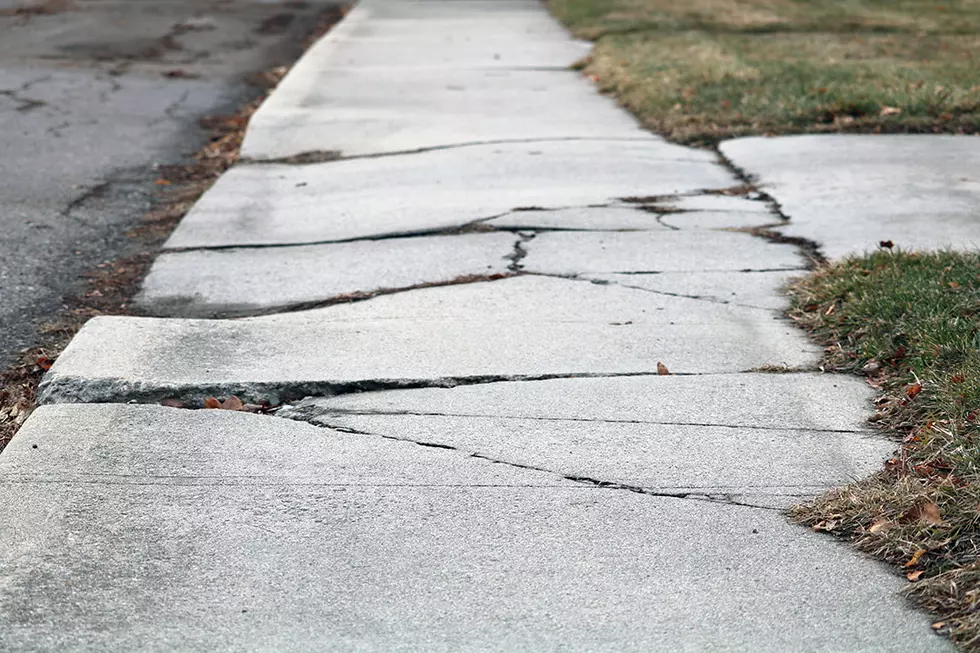
City exploring changes to sidewalk program, and who should pay
Martin Kidston
(Missoula Current) While there's little agreement yet on who should pay or how the city should fund costly sidewalk projects, most members of the Missoula City Council agree that the current subsidy program deserves a closer look.
Three council members introduced a resolution on Wednesday that, if passed, would discontinue the city's practice of subsidizing the cost of sidewalks in neighborhoods that don't have them. Instead, sponsors are seeking an additional $400,000 in funding for the Road District to pay for sidewalks and spread the costs to all city residents, not just the property owner that benefits from the work.
According to city officials, the added $400,000 would cost the owner of median-priced home in Missoula $15 in taxes.
“We can add $400,000 to the Road District to cover the cost and make sure we can build at least the same amount of sidewalks, if not more, every year,” said council member Daniel Carlino, one of the measure's sponsors. “It would be about $2.40 per $100,000 of a home's taxable value. Instead of charging individual households thousands of dollars, we could cover it as a city and spread it out.”
The city's sidewalk program has undergone a number of changes over the last decade. Roughly 10 years ago, the property owner was responsible for 100% of the cost of a sidewalk abutting their property.
But when some property owners were left with bills as high as $34,000, the city created a new subsidy program. It caps a property owner's cost at $9,000 and provides them several payment options, including eight- 12- or 20-year increments, or a complete deferral that's repaid when the property sells or changes ownership.
“We all agree that we do have sidewalk issues,” said council member Sandra Vasecka, one of the measure's sponsors. “It's just a matter of agreement on who is going to be liable for the cost of the sidewalk.”
Taxes, budgeting and costs
Ending the city's current sidewalk subsidy program and placing the cost on all city residents raised more questions than answers on Wednesday. As proposed, the measure would only apply to projects ordered by the city in built-out areas.
Commercial properties and multi-family residences would be responsible for their own costs, as would the buyer of a newly constructed home. Some also argue that placing free sidewalks in some areas while others have had to pay for them may be unfair.
With agreement initially out of reach, council members voted 10-1 in directing city staff and the administration to come back by the end of June with a policy that considers the impacts of full funding, or other funding options. It also asks the city to explore material options.
Council member Kristen Jordan, the measure's third sponsor, cast the only opposing vote. But Jeremy Keene, director of Public Works, said the request passed Wednesday times well with the approaching budget season.
“What I'd caution is, we've got a lot of things in the budget coming up,” he said “Making this decision outside the context of the budget doesn't give you a picture of what kind of tax increases you'll need to look at.”
Keene also suggested potential options. Among them, the city could look at increasing the subsidy it offers, or increasing the amount it allows in deferred costs. Instead of asking all city residents to cover the cost of neighborhood sidewalks, he also suggested a sidewalk special improvement district could be created in specific areas that benefit from the work.
“When we ask property owners to pay for sidewalks, they're also getting equity in the value of the home that the sidewalks create,” Keene said “We know walkable neighborhoods create more value. There's value going into that property when we do sidewalks. If you can defer the cost until the property is sold or transferred, that's when the value is realized.”
Most members of council agreed that the current sidewalk program is deserving of a closer look and possible changes. They also agreed that the current administration and Public Works should be given the space and time to test and explore options.
Holding specific proposals until the end of June could also give stronger consideration to the budget. Since $400,000 is sought by the measure's three sponsors, the funding could be found in other programs and not by raising taxes.
Vasecka, an opponent of ongoing tax increases but a proponent for changes to the sidewalk program, said the city directed roughly $330,000 last year to urban camping. It's one area where funding could be diverted to sidewalks, she said.
“That's money that could be spent on sidewalks, roads etc.,” she said. “It's enough to cover the difference in these sidewalk costs.”
